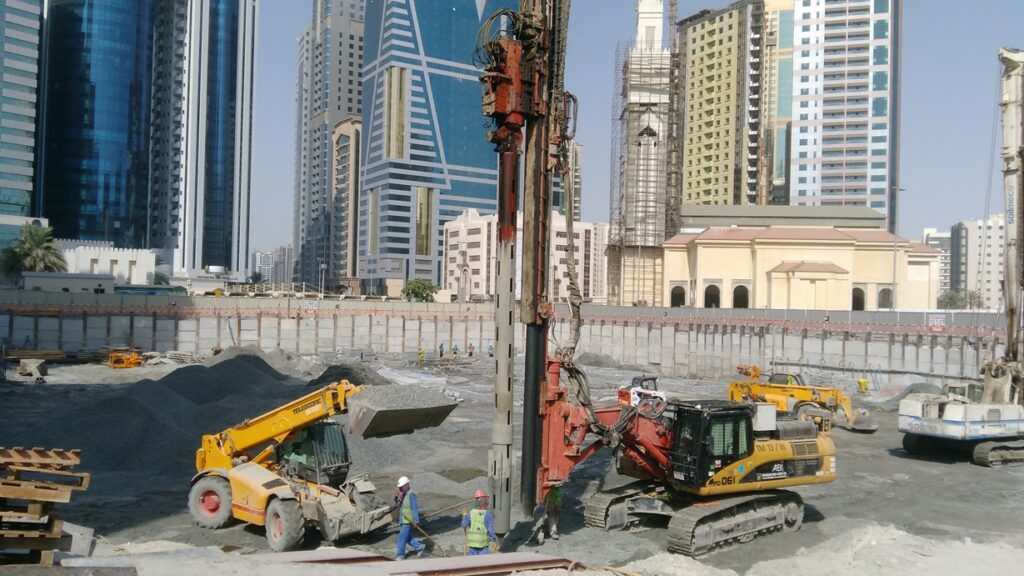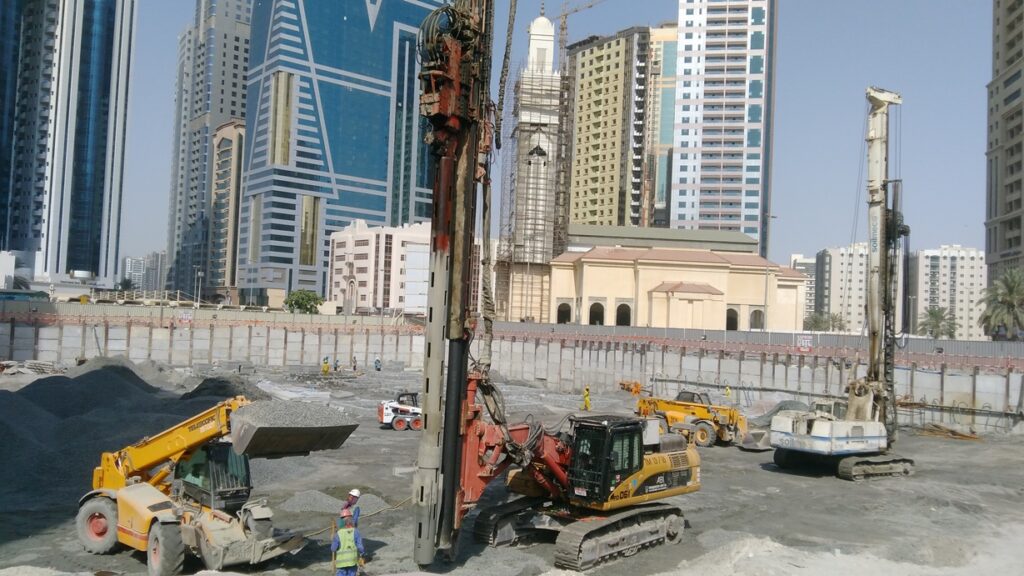Vibro CompactionVibro compaction is a ground improvement technique that densifies clean, cohesionless granular soils by means of a downhole vibrator. The vibrator is typically suspended from a crane and lowered vertically into the soil under its own weight. Penetration is usually aided by water jets integrated into the vibrator assembly. After reaching the bottom of the treatment zone, the soils are densified in lifts as the probe is extracted. During vibro compaction, clean sand backfill is typically added at the ground surface to compensate for the reduction in soil volume resulting from the densification process. The vibratory energy reduces the inter-granular forces between the soil particles, allowing them to move into a denser configuration, typically achieving a relative density of 70 to 85 percent. The treated soils have increased density, friction angle and stiffness. Compaction is achieved above and below the water table.
The improved soil characteristics depend on the soil type and gradation, spacing of the penetration points and the time spent performing the compaction. Generally, the vibro compaction penetration spacing is between 6 feet and 14 feet, with centers arranged on a triangular or square pattern. Compaction takes place without setting up internal stresses in the soil, thus ensuring permanent densification. The use of clean sand backfill during vibro compaction allows the original site elevation to be maintained. However, on sites where the planned final grade is below the existing grade, lowering of the site elevation may be desirable. In these instances, the ground surface is allowed to subside during the compaction effort.
Vibro compaction permits the use of economical spread footings with design bearing pressures generally of 5 ksf up to 10 ksf. Settlement and seismic liquefaction potentials are reduced. The required treatment depth is typically in the range of 15 to 50 feet, but vibro compaction has been performed to depths as great as 120 feet. Examples of previously performed applications include increasing bearing capacity, decreasing settlement and mitigating liquefaction for planned structures, embankments, railways and roadways.
Vibro compaction rigs can be fully instrumented with an on-board computer to monitor parameters during vibro compaction. Monitoring these parameters allows the operator to correct any deviations in real-time during the construction process to keep the vibro compaction within project specifications. Data from the Data Acquisition (DAQ) system such as amperage and lift rate are recorded and displayed in real-time alongside specified target values on an in-cab monitor.


